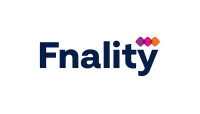Fnality, a key player in the development of tokenized versions of prominent currencies that are backed by central bank cash, has announced a significant milestone, securing $136 million in a Series C funding round. This investment aims to enhance the company’s blockchain-based wholesale payment network.
The latest funding round was spearheaded by prominent financial institutions, including WisdomTree, Bank of America, Citi, KBC Group, Temasek, and Tradeweb. Additionally, several existing investors participated, reinforcing their commitment to the venture. These include major banks and financial entities such as Banco Santander, Barclays, BNP Paribas, DTCC, Euroclear, Goldman Sachs, ING, Nasdaq Ventures, State Street, and UBS.
Fnality’s innovative settlement infrastructure is underpinned by distributed ledger technology, allowing for the processing of sterling payments on-chain using central bank money. This advanced platform facilitates real-time trade settlements, delivery-versus-payment for digital securities, and payment-versus-payment in foreign exchange transactions. This streamlining of processes holds the promise of reducing the need for intermediaries, accelerating settlement times, and optimizing capital utilization for banks. For instance, a repurchase agreement trade that typically takes one day could now conclude almost instantaneously, enabling quicker access to capital for further transactions.
The funding secured will play a crucial role in rolling out systems for additional currencies, developing liquidity management tools, and enabling the settlement of tokenized assets, including securities and stablecoins. This investment represents a significant push for Fnality in its endeavor to establish a global settlement network that leverages distributed ledger technology, linking current wholesale markets with the expanding ecosystem of institutional tokenized assets.
In a statement, Jim DeMare, co-president of Bank of America, highlighted the importance of this partnership, calling it “an important milestone in the digitization of institutional markets.” He noted that by adopting new technological solutions, the industry can modernize its market structure, thereby creating a foundation for institutions to function with enhanced speed and efficiency.







